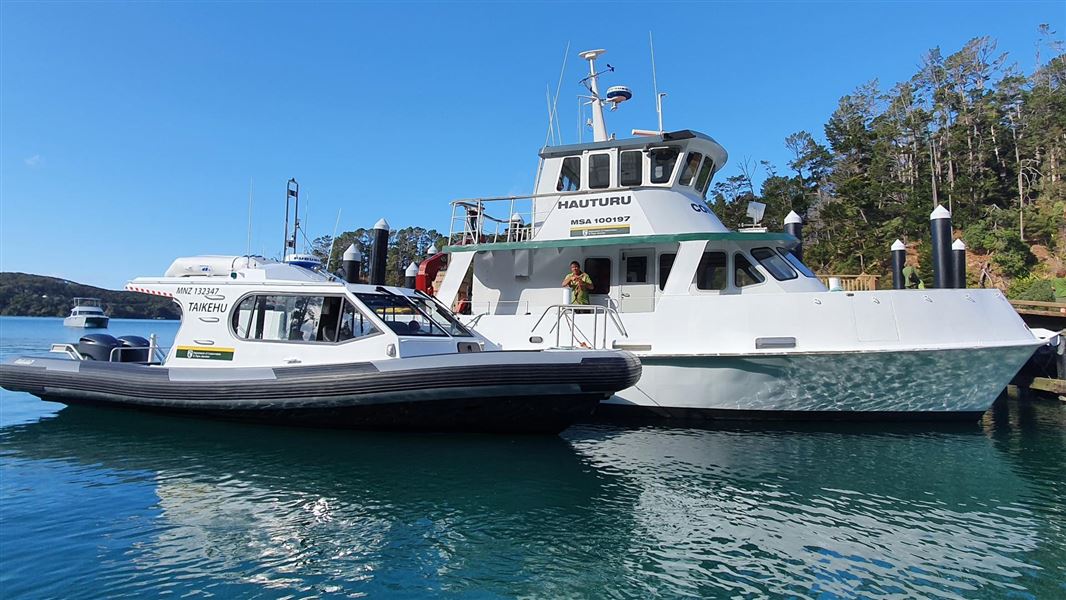Archived content: This media release was accurate on the date of publication.
Date: 23 December 2020
DOC Marine Reserves Ranger Gabrielle Goodin says she is delighted that the marine reserves in the Auckland region are receiving additional tools for protection under the Conservation (Infringement Systems) Act 2018.
“Auckland’s marine reserves are very special places. They offer spectacular opportunities from both above and below the water to see rare and abundant species and environments. Having rules and strong compliance measures in place help protect and preserve the ecosystems at these locations for everyone to enjoy.
“The benefit of the new infringement system is that it is efficient and allows us to spend more time in the field patrolling our marine reserves and less time in the office processing paperwork. This also means more time available for us to pursue other conservation work.
“The system also gives DOC a better understanding as to where offending is happening and the frequency of it. DOC can then effectively target compliance resources to reduce offences in the future.”
The system will allow DOC to issue infringement notices to people breaking conservation laws, in addition to the existing compliance tools.
Infringement notices will see offenders fined between $200 and $800 and do not result in criminal convictions. However, those found committing serious offences or people who are repeat offenders can still be prosecuted.
DOC is encouraging anyone who observes people breaking conservation rules, such as fishing in a reserve or putting marine wildlife at risk, to report the behaviour with as much information as possible to 0800 DOC HOT.
In the Auckland region, marine reserves are located at Cape Rodney-Okakari Point (Goat Island), Tāwharanui, Long Bay-Okura, Te Matuku (Waiheke), and Motu Manawa-Pollen Island.
Gabrielle Goodin says: “Whether it’s on land or on the water, we encourage everyone visiting marine reserves to familiarise themselves with rules to help preserve the special nature of these places.”
Background information
Marine reserves are the highest level of marine protection established under the Marine Reserves Act 1971. The main aim of marine reserves is to create areas as true to natural marine habitats and life. This means it is an offence to touch or take anything from a marine reserve.
Every marine reserve in Aoteroa/New Zealand is unique in their features and rich in biodiversity. The natural undisturbed state of these areas also sees the reserves being desirable spots for recreational activities including swimming, kayaking, snorkelling, diving, exploring rock pools and walking.
To identify marine reserve boundaries – find the markers, read the signs and use the MarineMate app. Reserve locations can also be found on our website.
Contact
For media enquiries contact:
Email: media@doc.govt.nz
